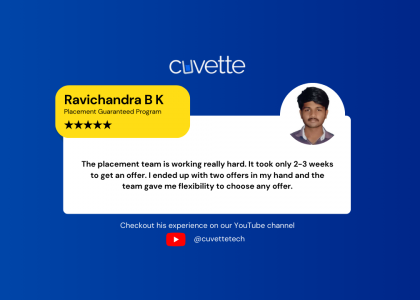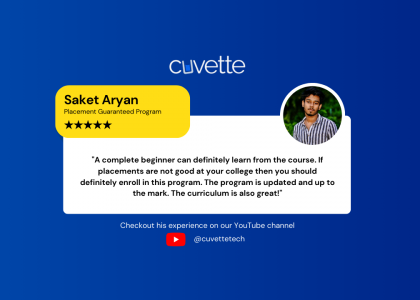If you are also looking for jobs, join our Placement Guaranteed Course designed by top IITians and Senior developers & get a Job guarantee of CTC upto 25 LPA – /placement-guarantee-program/
At Mastercard, a technical interview is a vital process used to gauge the core technical skills of engineers. Unlike many other companies, Mastercard challenges candidates with questions that are not typical classroom algorithms but rather scenarios that encourage candidates to demonstrate their problem-solving abilities. Here are five effective strategies to prepare for a technical interview at Mastercard:
Familiarize Yourself with the Interview Structure
Begin by exploring Mastercard’s technical interview guide to gain a clear understanding of the interview format. This resource will offer you:
- An outline of the interview stages.
- Strategies for tackling technical problems.
- Useful resources to aid your preparation.
Focus on Problem-Solving Skills
Mastercard steers clear of “gotcha” questions that depend on obscure knowledge. Instead, candidates should focus on enhancing their problem-solving skills. Practice articulating your thought process and tackling general coding problems, which are more beneficial than memorizing obscure algorithms.
Here’s a streamlined list of technical interview questions, organized by categories to facilitate easier preparation:
Programming Concepts
- Object-Oriented Programming (OOP) Basics: Explain the fundamentals of OOP, including inheritance and polymorphism.
- String Manipulation: Discuss basic string manipulation techniques.
- Array Manipulation: Address easy-level data structure questions related to arrays.
Database Management and SQL Queries
- SQL Queries: Describe how to construct basic and nested SQL queries involving
WHERE,HAVING,GROUP BY,ORDER BY,LIKE, etc. - SQL Joins: Explain different types of SQL joins and identify which type is the fastest.
- Database Comparison: What are the key differences between MongoDB and MySQL?
- DDL vs. DML: Differentiate between Data Definition Language (DDL) and Data Manipulation Language (DML).
Algorithms and Problem Solving
- Dynamic Programming: Solve problems like the Knapsack variation and “Min Steps to One.”
- Tree and Graph Traversal: Explain level order traversal in binary trees.
- Link List Manipulation: Solve problems like “Next Greater Node in Linked List” and check if a string forms a palindrome.
- Miscellaneous Algorithms: Tackle problems like finding the longest palindromic subsequence, square root calculation, and maximum subarray sum.
Software Engineering and System Design
- Node.js Concepts: Discuss why Node.js is single-threaded and explain concepts like piping and reconciliation in Node.js.
- React Specifics: Describe the purpose of the lifecycle method
getSnapshotBeforeUpdate(). - Systems Programming: Explain concepts like demand paging, virtual memory, and deadlock resolution.
- Multiprocessor Systems: Outline the benefits of using a multiprocessor system.
Practical Application Questions
- Project and Internship Inquiry: Be prepared to discuss details of projects and internships, highlighting specific challenges, technologies used, and personal contributions.
Additional Considerations
- Database Operations: If an object attribute is removed in the code, is it automatically deleted from the database?
If you are also looking for jobs, join our Placement Guaranteed Course designed by top IITians and Senior developers & get a Job guarantee of CTC upto 25 LPA – /placement-guarantee-program/
Practice Articulating Your Thoughts Aloud
While it’s crucial to hone your technical skills, practicing how to effectively communicate during an interview is equally important. Spend time practicing out loud: ask clarifying questions, walk through your solutions step-by-step, and explain your reasoning. This will help you become more articulate and confident in discussing your thought processes and technical knowledge.
Here’s a streamlined list of HR interview questions, organized by categories to facilitate easier preparation:
Personal Background and Self-Improvement
- Introduction: Could you please introduce yourself?
- Self-Improvement: What activities do you engage in during your free time to enhance your skills?
Career Motivation and Company-Specific Interest
- Interest in Mastercard: Why are you interested in working at Mastercard? What attracts you to this company?
- Company Knowledge: What do you understand about Mastercard and its operations?
Work Experience and Changes
- Reason for Change: Why are you considering a change in your job?
- Response to Change: How do you typically handle changes or adapt to new situations?
Values and Decision-Making
- Core Values: What are your fundamental values that guide your professional conduct?
- Difficult Decisions: What was the toughest decision you have had to make in your life, and how did you handle it?
Expectations and Logistics
- Job Expectations: What are your expectations from this new role?
- Relocation Availability: Are you willing to relocate after the lockdown ends?
Reflective Questions
- Regrets: Are there any decisions or actions in your past that you regret?
These preparation tips not only set the foundation for succeeding in Mastercard’s technical interviews but are also applicable to technical interviews at other companies, making them universally valuable for any tech professional’s career advancement.
If you are also looking for jobs, join our Placement Guaranteed Course designed by top IITians and Senior developers & get a Job guarantee of CTC upto 25 LPA – /placement-guarantee-program/






Recent Comments